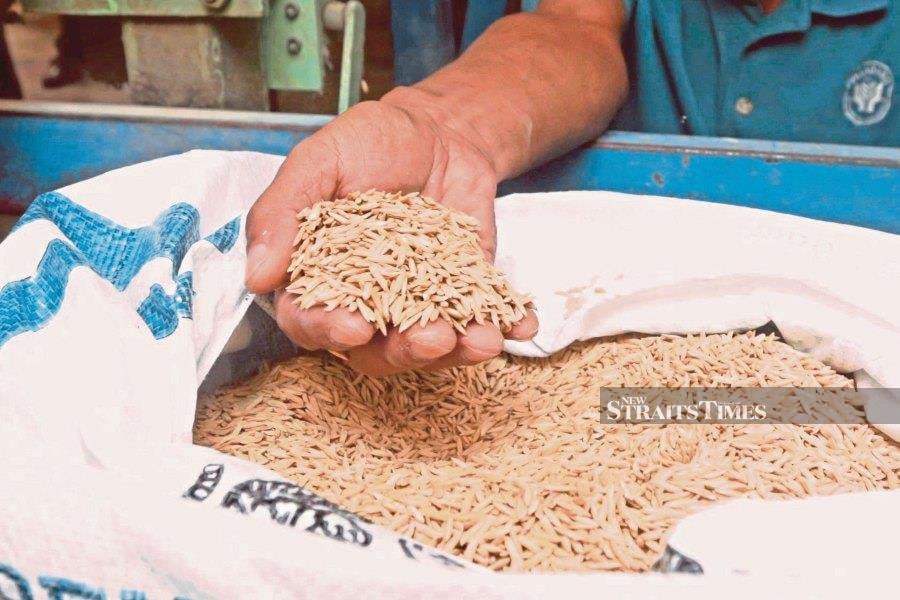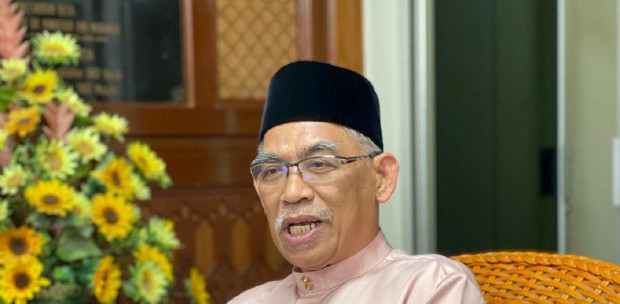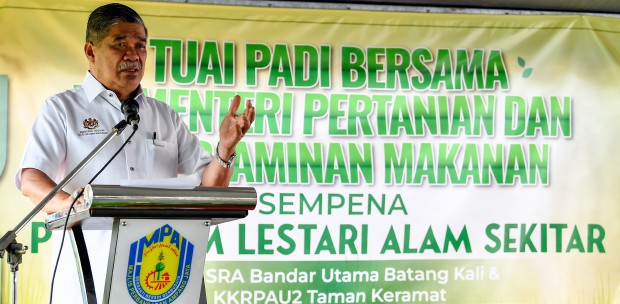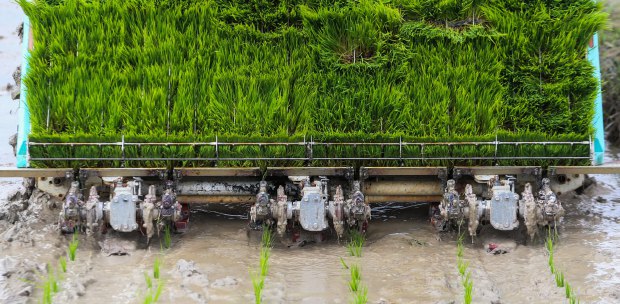ALOR STAR: An assurance has been given to the Muda Agriculture Development Authority (Mada) that there will be a sufficient supply of certified padi seeds for the current cultivation cycle.
Mada said the assurance of 964,507 metric tonnes of certified padi seeds supply, as required by the agency, was given by private producers during a meeting chaired by the agency's general manager, Kamarudin Dahuli, on Wednesday.
In a recent statement, the rice producers have assured the public that the ready-to-sell and currently distributed stock is abundant, totalling 9,039 bags for MR297 and MR315 varieties.
These stocks are channelled through reputable entities, including Pertama Padi Miller, Seri Merbok Miller, and OBL Maju Miller.
Additionally, the producers have obtained approval for an additional 8,000 bags of padi seeds, further fortifying their commitment to meet market demands.
Mada, as highlighted in the statement issued by its corporate communications unit, underscores its dedication to ensuring a steady and substantial rice supply, reinforcing its pivotal role in sustaining the industry.
"The producers have pledged that the ready-to-sell stock and stock currently being distributed is at 9,039 bags for MR297 and MR315 varieties through Pertama Padi Miller, Seri Merbok Miller and OBL Maju Miller.
"The other 8,000 bags of padi seeds have also been approved through MadaCorp," Mada said.
According to Mada, the certified padi seeds distribution is done through the Area Farmers Organisation (PPK) and appointed accredited retailers.
It said PPK Mada had received an order of 130,846 bags of padi seeds.
Until Nov 16, 84,266 bags have been delivered to PPK Mada, with 78,033 bag have been distributed.
Mada added that the privately certified padi producers have also pledged to deliver 22,339 bags of MR297 and MR315 variety seeds next week after obtaining approval from the Agricultural Department's laboratory and the Padi and Rice Regulatory Board.
"For information, on Nov 14, the Agriculture and Food Security minister, the ministry's secretary-general Datuk Lokman Hakim Ali, Mada chairman Datuk Dr Ismail Salleh and Mada general manager visited the mills concerned to make sure that the certified padi seeds are available and sufficient.
"To ensure the padi farmers can carry out the second cultivation cycle for 2023, Mada wishes to urge the certified seeds producers to carry out their responsibility in delivering the supply at a reasonable price within a reasonable period," added the agency.
Mada said that based on the record, the padi fields' land preparation for the current cultivation cycle has reached 87.9 per cent, while the padi planting has reached 40.2 per cent.
Last month, it was reported that padi farmers were crying foul over the supply shortage of certified padi seeds, forcing them to obtain the supply in the 'black market' at a price above the ceiling set by the government.
Early this month, Dr Ismail and the national Farmers Organisation Authority (LPP) chairman, Datuk Mahfuz Omar called the Agriculture and Food Security Ministry to take stern actions against privately certified padi seeds producers over the supply shortage.
Mahfuz was reported as saying that the shortage was affecting the current padi planting cycle that began in September while causing serious hardship to farmers as they were forced to purchase the seeds at above the ceiling price of RM45 for a packet of 25kg set by the government.
Dr Ismail had lashed out at 'arrogant' private certified padi seed producers for the supply shortage.
He was reported as saying that as of early this month, only 10.6 per cent of over 100,000ha of padi fields under Mada have started the new planting cycle as opposed to the over 50 per cent according to schedule.
He also claimed that the 465 agents appointed by the private padi seeds producers had refused to sell the supply to the PPKs.
Hence, Dr Ismail and Mahfuz have called on the ministry to review the quota for certified padi seeds production awarded to the private sector.
They insisted that the ministry should adjust the quota distribution in line with the maximum production capacity of four government agencies involved in the supply chain.
Mahfuz was reported as saying out of the 12 producers awarded with the quota to produce an accumulated 72,000 metric tonnes of certified padi seeds nationwide, eight producers from the private sector were given the largest chunk of the supply.
Lamenting that the distribution was illogical, he had insisted the quota for the four government agencies be increased in line with their maximum production capacity.
The four government agencies are PPK (Area Farmers Organisation) Lahar Bubu in Penang, MadaCorp, Felcra Plantation and Kemubu Agriculture Development Authority (Kada).





